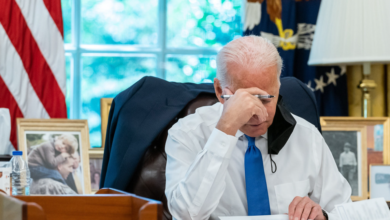Me First! Florida Moves its Primaries to January 31
 Just as they did in 2007, the state of Florida has decided to move its presidential primaries up to January 31, leaping over the traditional race starters of Iowa, New Hampshire, South Carolina, in Nevada.
Just as they did in 2007, the state of Florida has decided to move its presidential primaries up to January 31, leaping over the traditional race starters of Iowa, New Hampshire, South Carolina, in Nevada.
When Florida moved its primaries in 2007, it caused both the Democratic and Republican national committees to penalize the state by removing some or all of their delegates from the respective national conventions.
Like many other states in the country, Florida has been frustrated with the thought that, by the time the race gets the them in March, many times the nominee has built a substantial lead. Party officials in Florida have decided to move their primary up for a second consecutive presidential primary season, despite threats from the national committees to remove delegates like they did during the 2008 campaign.
Invariably, the traditional early states will move their primaries and caucuses up as well. This will cause the primary season to get underway much faster than any of the candidates had previously anticipated. It also effectively slams the door on anyone considering getting into the presidential race this late in the season.
Many other states sympathize with Florida and continually protest the fact that small states like Iowa, New Hampshire and South Carolina have such a large influence on who will be the nominee of the respective parties. Many would advocate a system that would allow other states in future years to cast their ballots first and say that the only reason the current system continues is because of tradition.
However, we must also realize that the two major political parties in America, Republicans and Democrats, are not official branches of the government, nor are they beholden to any constitutional regulations regarding primaries. In fact, the Constitution says nothing about political parties and their role in the selection of the president of the United States. It is therefore, according to the 10th amendment, up to each state to decide how they will cast their vote for nominees, a practice that is less than 100 years old in our country.
This debate will continue to rage on even past the primaries so but the fact remains that Florida’s decision to go against national party recommendations and proceed with the early primary is going to ramp up the timetable for the existing candidates and put a tremendous amount of pressure on them to perform. It virtually slams the door on any person considering a run for the presidency who has not entered the race and it may very well be the last nail in the coffin for several of the one digit candidates.
Either way the race to the presidency just got a whole lot more interesting.





Florida’s delegates were in fact allowed to attend the convention as guests in the end.